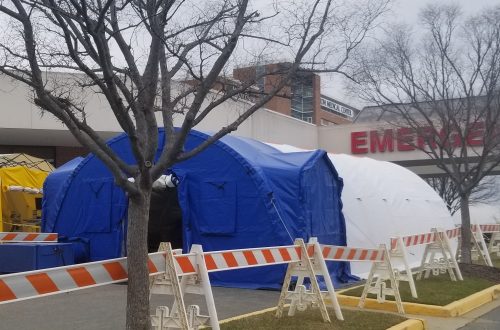Working to live out our faith in today’s culture can take us way out of our Christian bubble. Last week my preparation to speak on behalf of a ministry to victims of human trafficking landed me in a gang training seminar.
Officer Z, head of gang investigations in Lexington County in South Carolina, shot straight with us about the situation here, and maybe where you live as well.
Lexington is a nice middle-class suburb of Columbia, 80% white, 15% black, 6% hispanic 5% foreign born. The median home value is $144K. 89% have a high school diploma. 39% have a BA or higher. Officer Z gave us a reality check about the presence and threat of gangs “right here in River City.”
Things I was surprised to learn about gangs:
• It is not unlawful to be a member of a gang. Freedom of “association is guaranteed in the 1st amendment to our constitution: “Congress shall make no law . . . abridging . . . the right of the people peaceably to assemble.”
Of course the “peaceable” part is the kicker. A gang member was quoted in the New York Times to say, “If we’re sitting here bored, getting high and we got guns around, it ain’t nothing else to do.”
Most gang members may not sell drugs. But most carry guns and use them to commit crimes.
• Here in South Carolina, our laws define gangs as five or more people organized for the purpose of committing crimes. Most members adopt a gang’s dress, tattoos, colors, and hand signs. Officer Z has documentation on 200 gang members in Lexington w 300 more files pending.
• National gangs have extended their reach here. Local gangs have been linked to New York, New Orleans, Los Angeles and include Hells Angels, Bloods, Crips and the notorious MS 13.
One or the most surprising things I learned:
• Most human trafficking is run by organized crime. Individuals or couples may traffic here and there, but if they make much of an impact they are usually enticed or threatened to join a gang. Gangs are attracted to sources of money and power. Even low level gang members can make $600/day in drug sales. According to Officer Z, there is a ton of money to be made in SC.
• We have at least two cartels operating here. It used to be that interviewing gang members you'd find 1 out of 10-11 that were involved in child sexual exploitation. Now it’s 1 out of 4-5.
Gangs and cartels are increasingly discovering how profitable human trafficking is compared to drug trafficking. It’s a renewable source of income. Whereas with drugs, once you sell your product, you have to replenish your supply.
You have to hide drugs. Whereas with human trafficking you can so brainwash and manipulate the girls that you don’t need restraints. Most will choose to stay with you. The same inducements of fear and loyalty that attract new gang members are effective with victims of trafficking. So it's a skill set that gang leaders already possess.
• Schools are the worst hotbeds for gangs. They use them to recruit. In class rooms, it used to be when you asked a school class, “How many of you have been impacted by gangs in your daily lives?” 5% would raise their hands. Now 80-90% raise their hands.
Many gang members will go after special needs kids because they can be easy to manipulate. Many are sociopaths with seemingly no emotions. Talk to your kids about this and warn them of the dangers of gangs.
Like the terrorist group Hamas, some gangs like GD (Growth and Development [linked to Gangster Disciples]) will go to community leaders and ask, "How can we help?" Officer Z has a copy of a petition signed by GD members and given to the mayor of Lexington offering to provide service to the community and professing to be guardians of peace. As they have committed murder and other crimes, Officer Z has crossed their names off the petition.
• Gangs don't want to be noticed. So notice. If we see graffiti, call police. Gangs are highly territorial and they mark their territory. If you see something painted on buildings and you look at it and think, “Hmm…that’s good. I don’t think I could have painted that,” then it’s probably not graffiti. It’s street art.
But if you could have done it with a spray paint can, then it’s quite likely gang graffiti. Call the police. Cultivate a good relationship with them.
How can we help?
-
In addition to reporting graffiti and cultivating a relationship with the police we can help with both prevention and intervention.
Kids at risk need to see concrete possibilities for a future and a hope before gangs recruit them. Many shools run programs that invite the community to help kids choose other options than gangs.
Some programs invite men and women to come in and describe their jobs and careers. Those of us in Christian ministry can tell about the rewards and meaningfulness of giving our lives to ministry and helping others.
Increasingly women are choosing full membership in gangs. They aspire to and succeed in gaining power. They order the hits. Provide the guns. We can show them the possibilities of women pouring their lives into minnistry as a far better choice. Cast the vision for what is possible.
The best way to help is intervention. It takes hours and hours of time, but forging a relationship with an at-risk kid can perhaps offer not just a different vision of the future and hope, but nurture a loving relationship that may be a lifeline to children who have very little love and good guidance in their lives. It may also lead to opportunities to introduce them to Jesus.
The solutions to gang violence are just as difficult and complex as the solutions to human trafficking. Both are mushrooming right under our noses and both require love and sacrifice to stem the tide that is destroying so many lives precious to God.
Jesus has called us to "bind up the broken-hearted and set the captives free." We can pray for those involved in gangs and sex trafficking and those who minister to them.
Beyond prayer, Scripture tells us, Whatever our hand finds to do, let us do it with all our might. I'm volunteering with Lighthouse for Life. I'm sure if you searched you could find a similar ministry with which to partner in your community.
Post Views: 727




